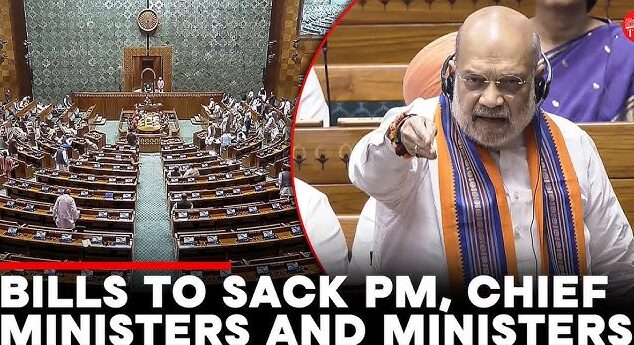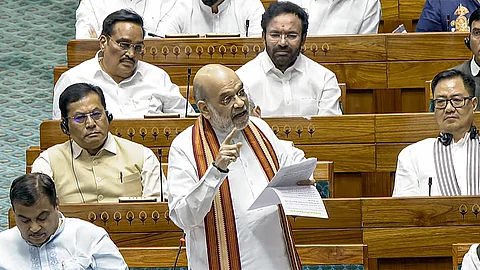In a landmark move aimed at raising the bar for political integrity, the Centre on Wednesday (August 20) introduced three bills in Parliament that would make it mandatory for the Prime Minister, Chief Ministers, and Ministers to step down if they are detained for over 30 consecutive days on serious criminal charges.
Union Home Minister Amit Shah tabled the bills in the Lok Sabha, calling it a long-awaited reform to strengthen transparency in public life.
Three Key Bills Introduced
The set of legislations presented include:
The Constitution (One Hundred and Thirtieth Amendment) Bill, 2025
The Government of Union Territories (Amendment) Bill, 2025
The Jammu and Kashmir Reorganisation (Amendment) Bill, 2025
What the Amendment Proposes
Under the new framework:
Any minister in custody for 30 days on charges punishable with at least five years’ imprisonment will automatically lose office from the 31st day.
The provision applies equally to the Prime Minister and Chief Ministers.
This seeks to fill a constitutional gap, as currently no explicit mechanism exists to remove ministers purely for being detained.
Opposition vs Government: A Heated Debate
The Opposition slammed the bills, alleging that the Centre was attempting to create a political weapon to target rivals.
The government, however, stood firm, arguing that the move was “long overdue to safeguard the sanctity of public office.”

Amendments to Key Constitutional Articles
The reform will amend:
Article 75 (Union Ministers)
Article 164 (State Ministers)
Article 239AA (Delhi Government)
along with provisions in the Government of Union Territories Act, 1963 and the Jammu & Kashmir Reorganisation Act, 2019.
Next Steps: JPC Scrutiny
The bills have been referred to a Joint Parliamentary Committee (JPC) for detailed review before being brought back for passage.
If enacted, this would be a watershed moment in India’s democratic framework, introducing a powerful deterrent against criminality in politics.


